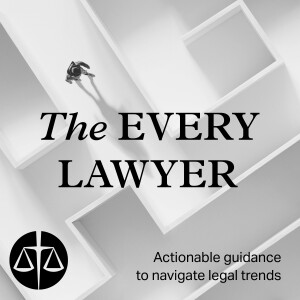
Overarching themes: lawyers can benefit from multi-disciplinary approaches in various ways, clients seriously benefit from holistic approaches, and that combining these two approaches is really making headway on improving access to justice for vulnerable communities.
Hosted by Julia Tétrault-Provencher and featuring:
Emily Murray Luke’s Place, legal office with social and health support workers on site, specialised on the needs of survivors of intimate partner violence. People centered approach.
Amy Slotek on her work as an embedded lawyer at a downtown Toronto mental health agency working with the homeless. Picking people up where they are.
Michele Leering on Community Lawyers, Outreach, A2J in legal education and reflective practice.
Ida Bianchi on how lack of access to all types of services, not only legal, often causes and then perpetuates people’s involvement with criminal and family justice systems.
Ab Currie on the uneven but steady march of progress on improving access to justice, the interplay between legal and non-legal problems, how these tend to cluster and feed off of one another, and that the legal profession is finally coming to realise more fully that you simply can’t solve one without solving the other.
Lisa Moore on Crossing Boundaries: Exploring Multi-Disciplinary Models for Legal Problem Resolution (2024). Lisa was the lead researcher and author and is also the director of the CFCJ.
Home - Luke's Place (lukesplace.ca)
Embedded Lawyer Program: 2022-23 annual report (legalaid.on.ca)
Home - CALC (communitylegalcentre.ca)
Michele Leering | Queen's Law (queensu.ca)
JUST13_Bio_Currie.pdf (cba.org)
Crossing boundaries: Exploring multi-disciplinary models for legal problem resolution (cfcj-fcjc.org)
More Episodes
 2024-06-20
2024-06-20
 2024-04-18
2024-04-18
 2023-10-13
2023-10-13
 2023-09-28
2023-09-28
 2023-09-21
2023-09-21
 2023-09-07
2023-09-07
 2023-06-22
2023-06-22
 2023-06-01
2023-06-01
Create your
podcast in
minutes
- Full-featured podcast site
- Unlimited storage and bandwidth
- Comprehensive podcast stats
- Distribute to Apple Podcasts, Spotify, and more
- Make money with your podcast
It is Free
- Privacy Policy
- Cookie Policy
- Terms of Use
- Consent Preferences
- Copyright © 2015-2024 Podbean.com






